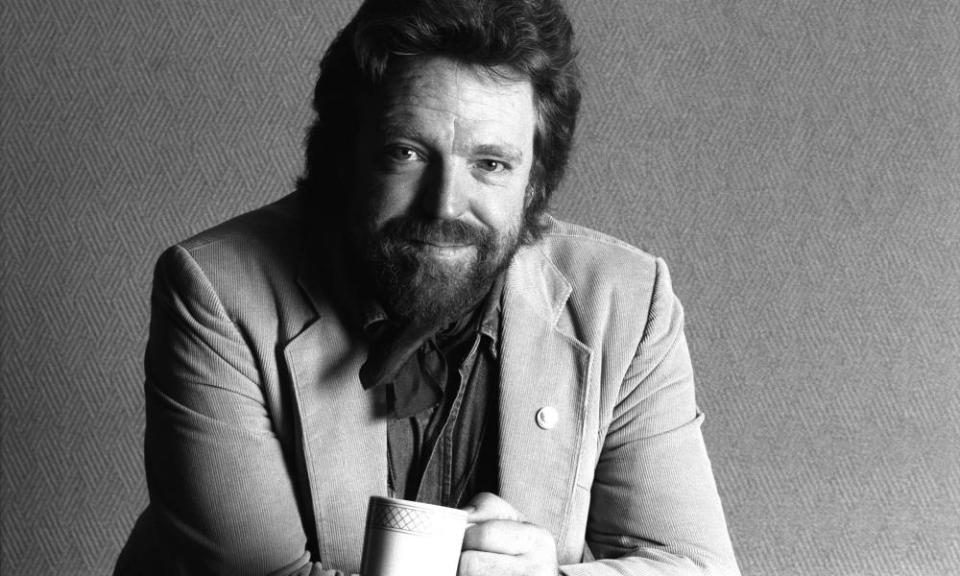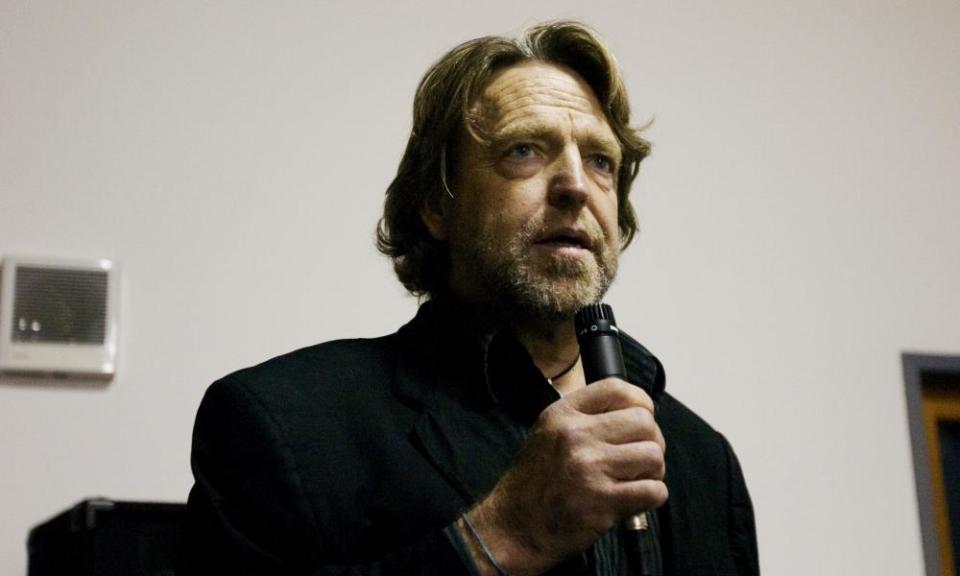John Perry Barlow: will dream of open internet die with its founding father?
The pioneer penned his techno-utopian ‘Declaration of the Independence of Cyberspace’ two decades ago. His ideals are at risk of going with him

Internet pioneer John Perry Barlow, who championed ideals of a free and open internet, has died. And his ideals are at risk of dying with him.
Barlow’s Declaration of the Independence of Cyberspace, written almost exactly 22 years ago, was a rallying cry for cyberpunks and a warning to governments: “On behalf of the future, I ask you of the past to leave us alone. You are not welcome among us. You have no sovereignty where we gather.”
The declaration laid out an optimistic vision for an egalitarian internet that would allow anyone to express their beliefs “without fear of being coerced into silence or conformity” and without government regulation.
“His optimism was infectious and he played such an important role in allowing people to be bold about what they might build,” said Siva Vaidhyanathan, professor of media studies at the University of Virginia.
The idea that the internet exists outside the reach of state and companies has been palpably eroded
Carl Miller, Demos
However, 22 years on and his techno-utopian vision has not materialised. In its place we have widespread government surveillance, a concentration of power into the hands of a few large multinational companies, widespread online harassment and increasingly polarised echo chambers.
“The idea that the internet exists outside the reach of state and companies has been palpably eroded,” said Carl Miller from thinktank Demos.
In 1996, cyberspace might have seemed like a separate sphere where the old rules of the physical world didn’t apply. But as the population of the internet mushroomed from a small group of academics to billions of people on smartphones around the world, its ugly underbelly started to bloat.
“The internet was always embedded with human beings and all of our weaknesses. There were always racists, misogynists and nationalists on the internet, but as it’s grown that just became clearer and more influential,” said Vaidhyanathan.
“He was right that the internet gave more people more voices than ever before, but it is also used to shut people down, lie and censor as much as empower,” added Miller.

As the population of cyberspace grew, so too did governments’ desire and ability to use it to surveil and manipulate citizens, from the NSA’s mass surveillance programmes to the Facebook-based “patriotic trolling” of Filipino president Rodrigo Duterte and China’s Great Firewall.
Barlow was by no means naive. He knew that technology could be used for evil as much as for good, but he chose to focus on the latter, as highlighted by the EFF’s executive director, Cindy Cohn, in this touching tribute.
“I knew it’s also true that a good way to invent the future is to predict it. So I predicted Utopia, hoping to give Liberty a running start before the laws of Moore and Metcalfe delivered up what Ed Snowden now correctly calls ‘turn-key totalitarianism’.”
He also knew that ensuring the internet had a healthy “immune system” required great effort on behalf of activists. “It wasn’t a slam dunk and it isn’t now,” he told Wired in 2016.
Since that interview, the internet’s immune system has been pummelled by increasingly powerful government and corporate manipulators, but all is not lost. His legacy lives on through the Electronic Frontier Foundation, which he founded, and the Freedom of the Press Foundation, organisations that tirelessly fight for people’s rights in the face of such immense challenges.
Now, more than ever, they need your support.

